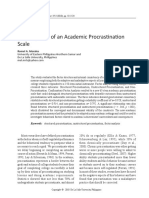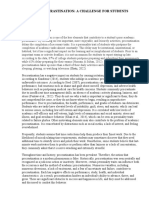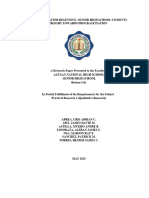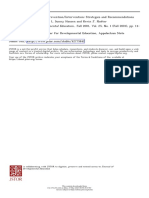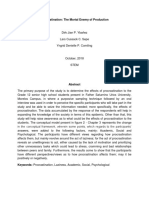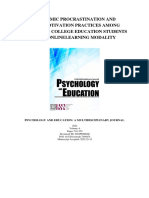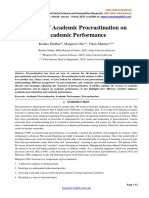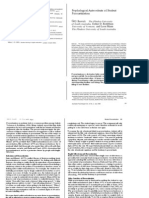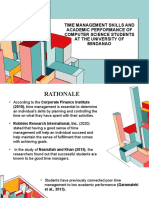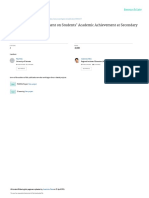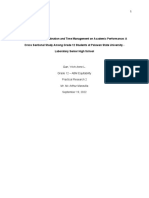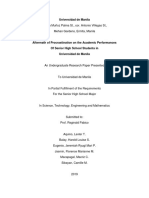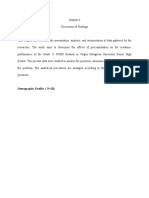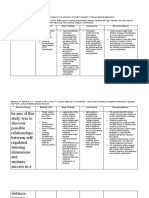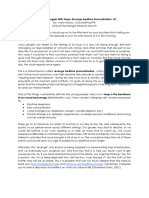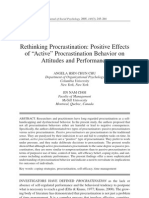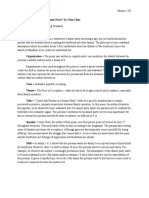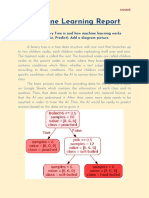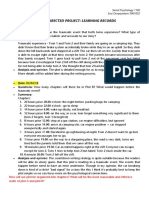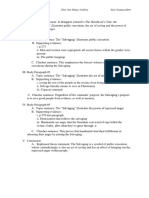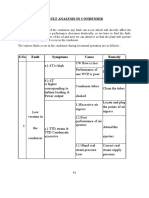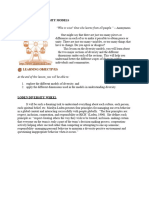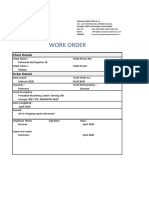0% found this document useful (0 votes)
308 views5 pagesProcrastination's Impact on MUIDS Students
The document discusses procrastination among MUIDS students. A survey found that 48% were moderate procrastinators and 19.4% were chronic procrastinators. The top reasons for procrastinating were laziness and boredom. Most students procrastinated on writing papers. While procrastination increased stress, it also improved skills like working faster and under pressure. The majority of students said they would procrastinate less in the future.
Uploaded by
api-327726527Copyright
© © All Rights Reserved
We take content rights seriously. If you suspect this is your content, claim it here.
Available Formats
Download as DOCX, PDF, TXT or read online on Scribd
0% found this document useful (0 votes)
308 views5 pagesProcrastination's Impact on MUIDS Students
The document discusses procrastination among MUIDS students. A survey found that 48% were moderate procrastinators and 19.4% were chronic procrastinators. The top reasons for procrastinating were laziness and boredom. Most students procrastinated on writing papers. While procrastination increased stress, it also improved skills like working faster and under pressure. The majority of students said they would procrastinate less in the future.
Uploaded by
api-327726527Copyright
© © All Rights Reserved
We take content rights seriously. If you suspect this is your content, claim it here.
Available Formats
Download as DOCX, PDF, TXT or read online on Scribd
/ 5

